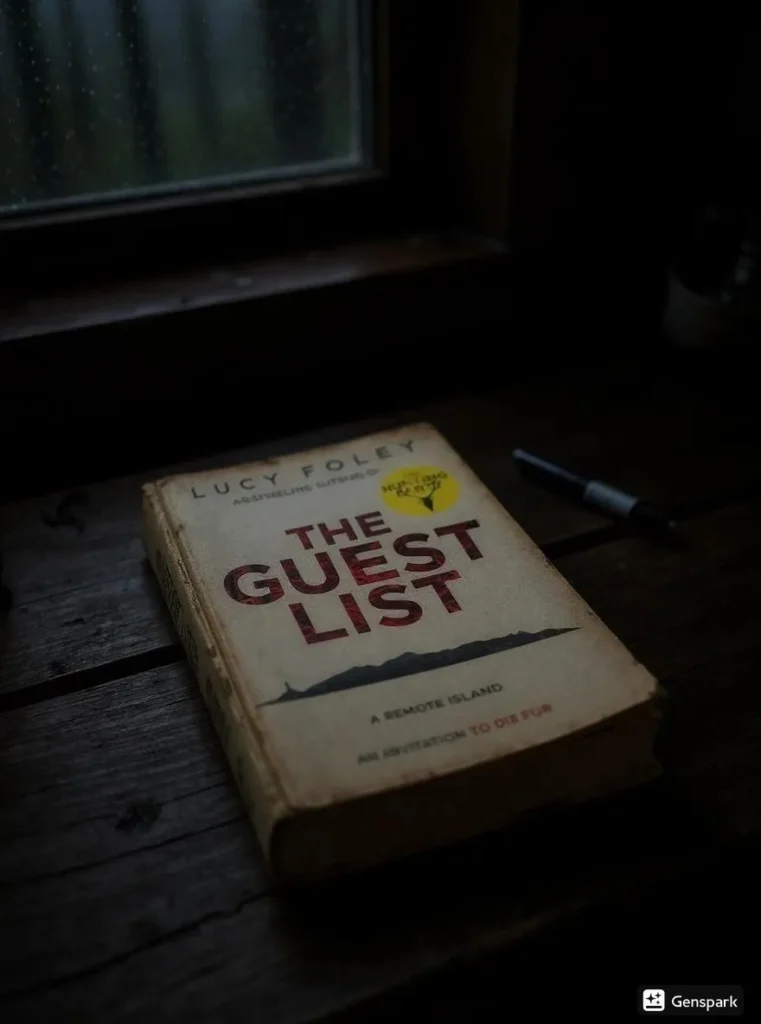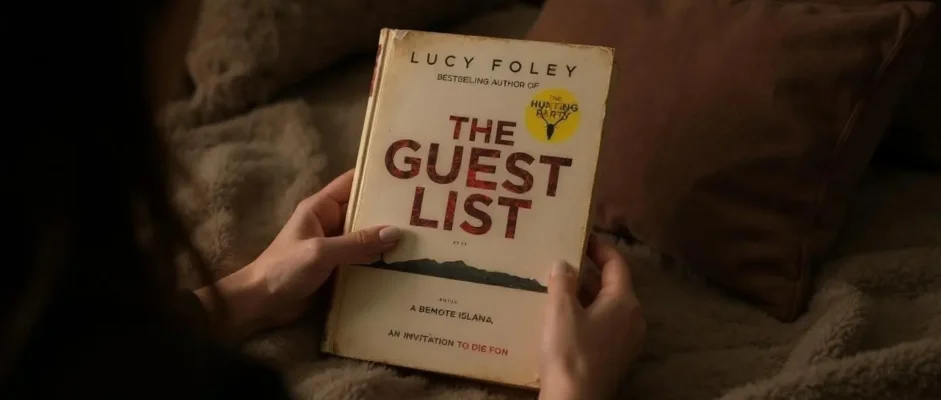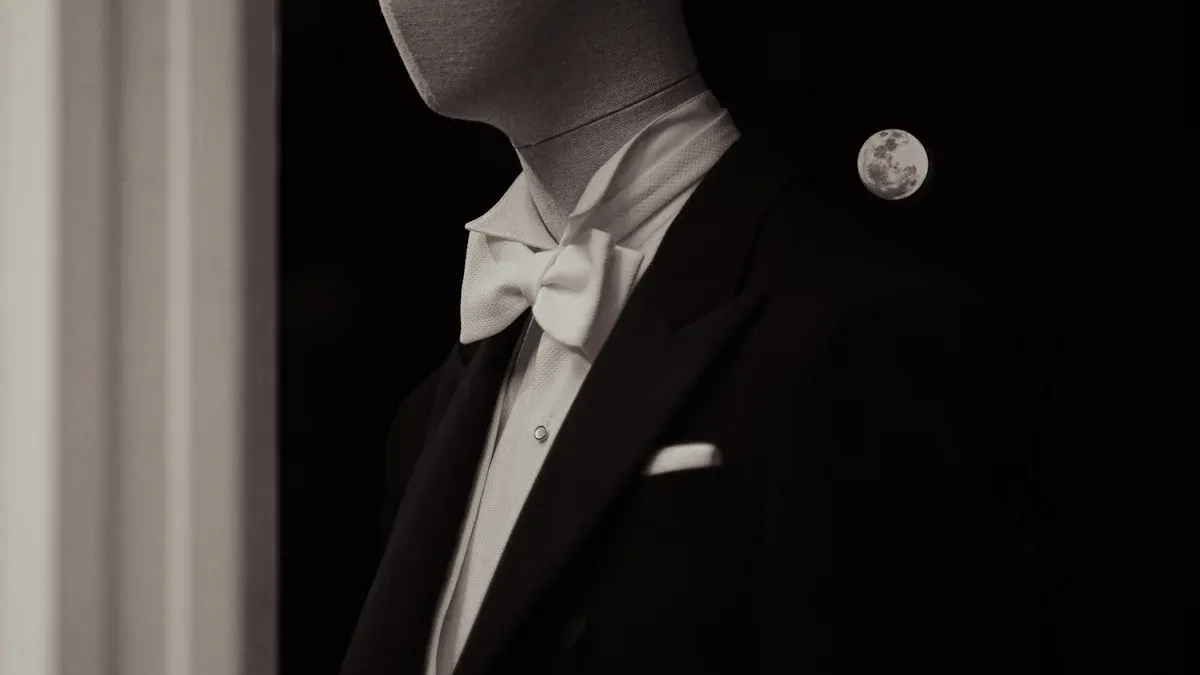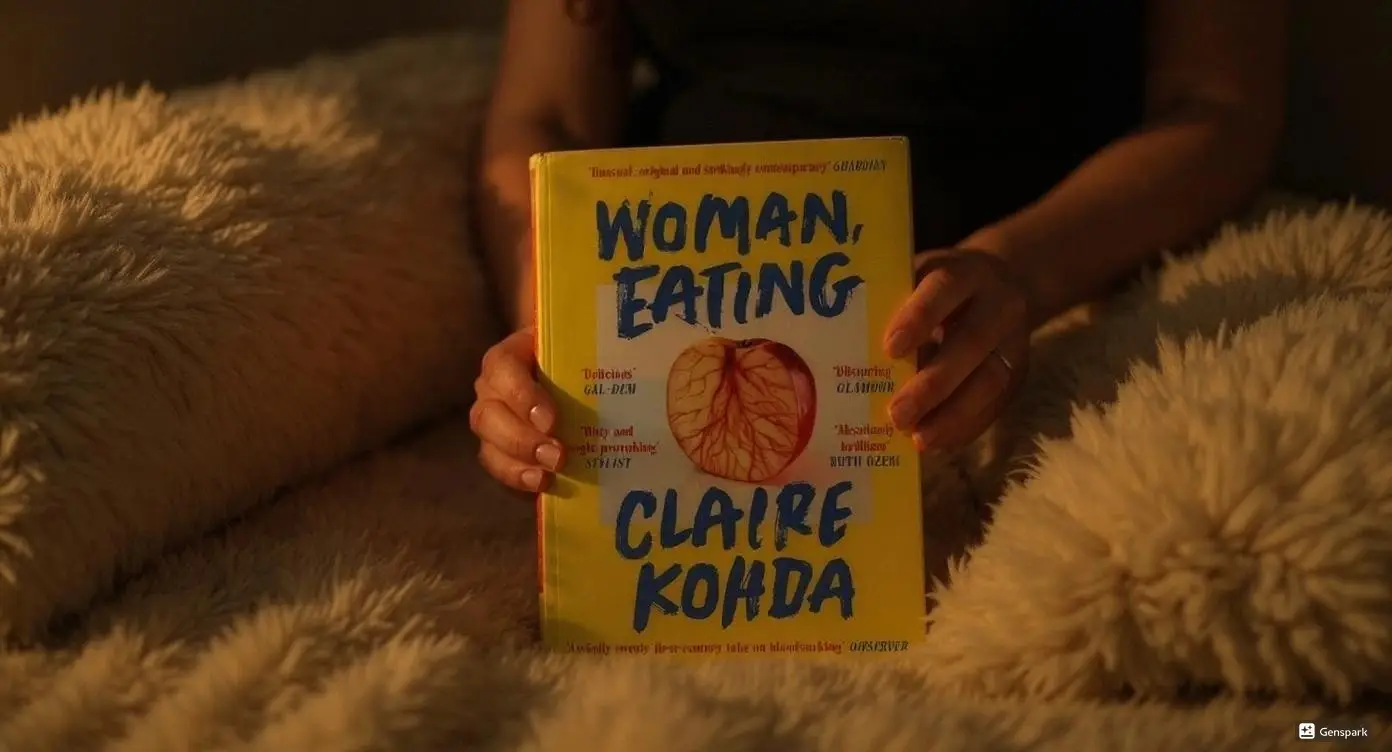I picked up The Guest List on a stormy night, expecting another formulaic wedding mystery. Boy, was I wrong. The story takes place at the wedding of Jules Keegan and Will Slater, which is being held on an island off the coast of Ireland, and what unfolds is a masterclass in psychological manipulation that left me mentally scarred. After reading over 5,000 books in my 20 years as a reviewer for Dionysus Reviews, I can say this thriller stands out like a blood stain on a wedding dress.
Foley doesn’t just write a murder mystery; she crafts an intricate web of human darkness that exposes the rotten core beneath polished exteriors. The multiple perspectives create a jaw-dropping reading experience that kept me turning pages until 3 AM. What makes this book special isn’t just the murder—it’s how Foley strips away every character’s facade to reveal the monsters underneath.
I’ve gotta be honest, this book hits different than your typical whodunit. The way Foley weaves past trauma with present-day revenge creates an emotional gut punch that resonates long after the final page. My verdict? This is a thriller that proves sometimes the most beautiful celebrations hide the ugliest truths.
Key Takeaways
The Guest List proves that wealth and privilege can’t wash away past sins, as characters face consequences for their cruel actions years later.
Foley masterfully demonstrates how bullying and social hierarchies in elite schools create lasting psychological damage that festers into deadly revenge.
The novel shows that social media facades and public images often mask deep personal trauma and toxic relationships beneath the surface.
Multiple narrators create unreliable perspectives that keep readers guessing while slowly revealing each character’s motivation for murder.
The isolated island setting becomes a character itself, trapping guests with their secrets while the wild Irish weather mirrors the emotional storm brewing among the wedding party.
Basic Book Details
Publishing Information: February 20, 2020 by William Morrow
Genre: Psychological Thriller/Mystery
Plot: A wedding celebration on a remote Irish island turns deadly when someone is murdered
Series Information: Standalone novel
Page Count: 384 pages
Main Characters:
- Jules Keegan: The ambitious bride with a magazine empire and dark secrets
- Will Slater: The charming groom hiding his violent past from prep school
- Hannah: The plus-one struggling with depression after losing her sister
- Johnno: Will’s working-class best friend carrying guilt and resentment
- Olivia: The teenage bridesmaid who knows more than she should
Plot Synopsis And Gothic Island Setting
A Remote Irish Island Sets An Eerie Stage For A Suspenseful Wedding Mystery
The story takes place at the wedding of Jules Keegan and Will Slater, which is being held on an island off the coast of Ireland. The island feels almost alive, breathing menace through every gust of wind and crashing wave. I found myself shivering as Foley painted this desolate landscape where cell service dies and escape becomes impossible.
The wedding venue—a crumbling chapel and reception space—mirrors the decay beneath the guests’ polished exteriors. Foley uses the Gothic atmosphere to amplify tension, making readers feel as trapped as the characters. The weather itself becomes an antagonist, with howling winds and sudden storms that seem to respond to the brewing violence.
The Murder Unfolds Through Shifting Viewpoints That Conceal The Killer And Victim
What blew my mind was how Foley conceals both the victim and killer until the final act. The alternating perspectives create a puzzle where each narrator reveals crucial information while hiding their own guilt. I spent hours trying to piece together the timeline, only to have Foley pull the rug out from under me.
The structure builds suspense through strategic information gaps. Past and present timelines interweave like a spider’s web, catching readers in misdirection after misdirection. This narrative technique left me questioning every character’s reliability and motivation.
Character Development And Psychological Depth
A Layered Cast Reveals Tensions Between Bride, Groom, Friends, And Family
Jules emerges as a complex antagonist disguised as a sympathetic bride. Her magazine empire and social climbing mask a ruthless personality that destroyed lives for personal gain. Foley reveals her true nature gradually, making readers complicit in initially liking her.
Will appears charming and successful, but his prep school past reveals a pattern of violence and privilege abuse. The friends of the groom dubbed the “ushers” seem to be unable to get over their high school days. His relationship with his old school friends exposes toxic masculinity and the way wealthy boys protect each other’s crimes.
Hannah serves as our emotional anchor—a grieving sister whose depression makes her an unreliable but sympathetic narrator. Her pain feels authentic and raw, providing the book’s emotional core.
Characters Are Driven By Buried Secrets And Hidden Resentments
Every character harbors secrets that connect to the central tragedy. Foley masterfully reveals how past actions create present consequences. The prep school dynamics expose class warfare and social hierarchies that breed resentment.
Johnno’s working-class background creates friction with Will’s privileged circle. His loyalty conflicts with his moral compass, creating internal tension that drives the plot forward. Olivia, despite being the youngest, carries adult burdens that no teenager should bear.
Narrative Structure And Literary Craftsmanship
Past And Present POVs Interweave To Build Suspense And Misdirection
Foley’s timeline structure creates addictive reading. The “Before” and “During” chapters build toward the inevitable murder while keeping readers guessing about the victim’s identity. This technique reminded me of Big Little Lies but with sharper psychological edges.
The multiple POV structure allows Foley to withhold information naturally. Each narrator has blind spots and biases that create unreliable testimony. This complexity elevates the book beyond simple mystery into literary territory.
Clues Are Revealed Gradually To Maintain Tension And Reader Investment
Foley plants clues like landmines throughout the narrative. Small details from early chapters explode with significance later, rewarding careful readers. The pacing builds relentlessly toward the climactic revelation.
The author’s background as a fiction editor shows in her meticulous plotting. Every scene serves multiple purposes—advancing plot, developing character, and planting red herrings. This craftsmanship separates amateur thrillers from professional work.

Themes And Social Commentary Analysis
Class And Privilege Are Critiqued Through Toxic Prep School Dynamics
The novel functions as a scathing indictment of elite educational institutions that protect wealthy predators. Foley exposes how private schools enable abuse through old boy networks and institutional cover-ups. The Trevellyan’s prep school represents systemic corruption that destroys vulnerable students.
Will and his friends embody entitled masculinity that treats others as disposable. Their wealth shields them from consequences while their victims suffer in silence. This theme resonates powerfully in our current cultural moment.
Themes Of Betrayal And Revenge Blend With Commentary On Public Image
Social media and public relations become weapons in Foley’s narrative. Jules’s magazine success depends on maintaining perfect appearances while hiding ugly truths. The disconnect between public personas and private realities creates psychological tension.
The revenge plot satisfies readers’ hunger for justice while questioning the morality of vigilante action. Foley doesn’t provide easy answers about whether the characters deserve their fates. This moral ambiguity elevates the thriller genre.
| Character Analysis | Motivation | Secret | Role in Murder |
|---|---|---|---|
| Jules | Social climbing and power | Destroyed lives for career advancement | Victim of her own ambitions |
| Will | Maintaining privileged status | History of violent abuse at school | Protected by wealth and connections |
| Hannah | Grief and guilt over sister’s death | Blames herself for family tragedy | Seeking truth and justice |
| Johnno | Class resentment and loyalty conflict | Witnessed crimes but stayed silent | Torn between friendship and morality |
| Olivia | Protecting family secrets | Knows about past tragedies | Youngest but most perceptive |
The character development feels authentic because each person contains contradictions. Foley avoids simple good/evil distinctions in favor of complex moral landscapes. Even sympathetic characters make questionable choices.
Pros
The atmospheric setting creates genuine unease that enhances the psychological tension. Foley’s prose captures the wild Irish landscape with cinematic vividness that makes readers feel present at this doomed celebration.
Character development exceeds typical thriller standards. Each narrator feels distinct and authentic, with believable motivations rooted in psychological realism. The prep school backstory provides compelling social commentary about privilege and institutional protection of predators.
The plotting deserves special recognition for its complexity and fair play. Clues are planted throughout without feeling heavy-handed. The multiple timeline structure builds suspense while maintaining narrative coherence.
Foley’s exploration of trauma and revenge adds literary weight to the thriller framework. The book examines how past violence creates cycles of retribution that destroy multiple generations.
Cons
The pacing occasionally slows during character exposition, particularly in the middle section where backstory threatens to overwhelm forward momentum. Some readers may find the multiple POV structure initially confusing.
Certain plot revelations feel slightly predictable for experienced thriller readers. The prep school abuse storyline, while handled sensitively, follows familiar patterns from other psychological thrillers.
The ending, while satisfying, ties up loose ends perhaps too neatly. Real-life trauma rarely resolves so completely, making the conclusion feel slightly artificial despite its emotional impact.
| Reading Difficulty | Time Investment | Content Warnings | Best Format |
|---|---|---|---|
| Moderate | 6-8 hours | Bullying, suicide, violence | Print (for note-taking) |
| Multiple POVs require attention | Weekend read | School abuse, depression | Audio (excellent narration) |
| Timeline jumps need tracking | Page-turner pacing | Murder, toxic masculinity | Digital (searchable) |
Final Verdict
The Guest List succeeds as both entertainment and social commentary. Foley crafts a thriller that satisfies genre expectations while delivering meaningful insights about privilege, trauma, and justice. After analyzing thousands of mysteries for Dionysus Reviews, I can confirm this novel stands among the best contemporary psychological thrillers.
The book works on multiple levels—as a puzzle for mystery lovers, a character study for literary readers, and a social critique for those seeking substance. Foley’s background in publishing shows in her professional execution and attention to craft details.
I recommend this book for readers who enjoyed Gone Girl or The Silent Patient. It’s perfect for book clubs because it generates discussion about moral ambiguity and social justice.
Dionysus Reviews Rating: 7/10
This rating reflects the book’s strong execution, compelling characters, and social relevance. While not groundbreaking, it represents thriller writing at its most accomplished. Foley proves that genre fiction can tackle serious themes without sacrificing entertainment value.
Sip The Unknown—Discover Stories You Never Knew You’d Love!
Dionysus Reviews Has A Book For Every Mood
Biography & Memoir
Fiction
Mystery & Detective
Nonfiction
Philosophy
Psychology
Romance
Science Fiction & Fantasy
Teens & Young Adult
Thriller & Suspense
Frequently Asked Questions
What makes this book worth reading despite potential flaws?
The Guest List combines addictive plotting with meaningful social commentary about elite schools and privilege. Foley’s multi-layered characters feel like real people rather than thriller archetypes, making their secrets and betrayals genuinely shocking. The Irish island setting creates Gothic atmosphere that enhances the psychological tension without overwhelming the human drama.
How does Lucy Foley’s writing style compare to other thriller authors?
Foley writes with literary sophistication that elevates genre conventions without abandoning thriller pacing. Her background as a fiction editor shows in her careful plotting and character development. Unlike authors who rely on shocking twists, Foley builds suspense through psychological realism and emotional truth. Her prose style sits between Tana French’s literary mysteries and more commercial thrillers.
What specific prep school dynamics drive the central conflict?
The novel exposes how elite institutions protect wealthy students who abuse their power over vulnerable classmates. Will and his friends represent entitled masculinity that views others as disposable entertainment. Their prep school enabled a culture where boys from powerful families could commit serious crimes without consequences, while working-class students like their victims had no recourse for justice.
Why does the multiple narrator structure work so effectively here?
Each narrator serves a specific function in revealing the truth while maintaining mystery about the murder. Their different perspectives create unreliable testimony that keeps readers guessing while slowly building the complete picture. Foley uses their individual blind spots and biases to control information flow, making the eventual revelations feel both surprising and inevitable.
How does the book handle themes of revenge and justice?
Foley presents revenge as both understandable and morally complicated, avoiding simple good versus evil distinctions. The characters who seek justice have legitimate grievances, but their methods raise ethical questions about vigilante action. The novel suggests that institutional failures create situations where personal revenge becomes the only available option, while questioning whether such actions truly provide healing or simply perpetuate cycles of violence.









